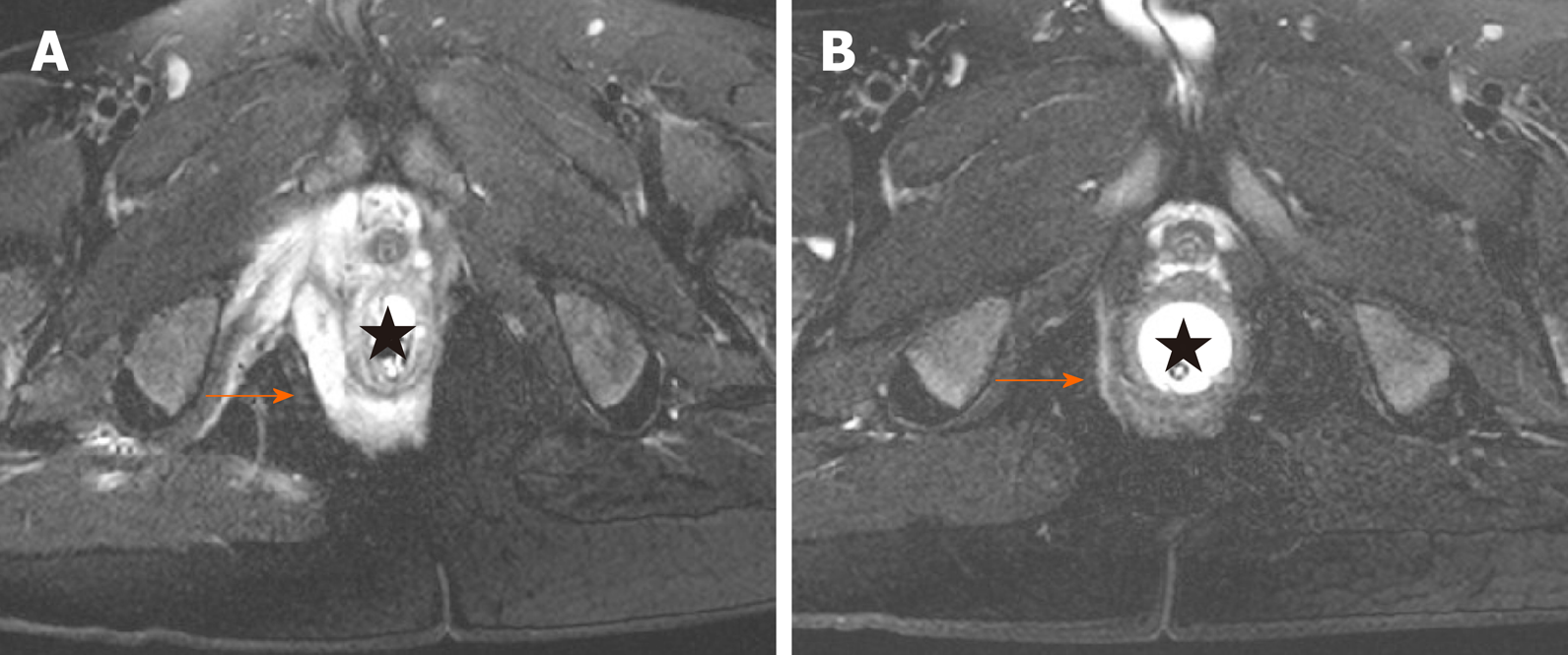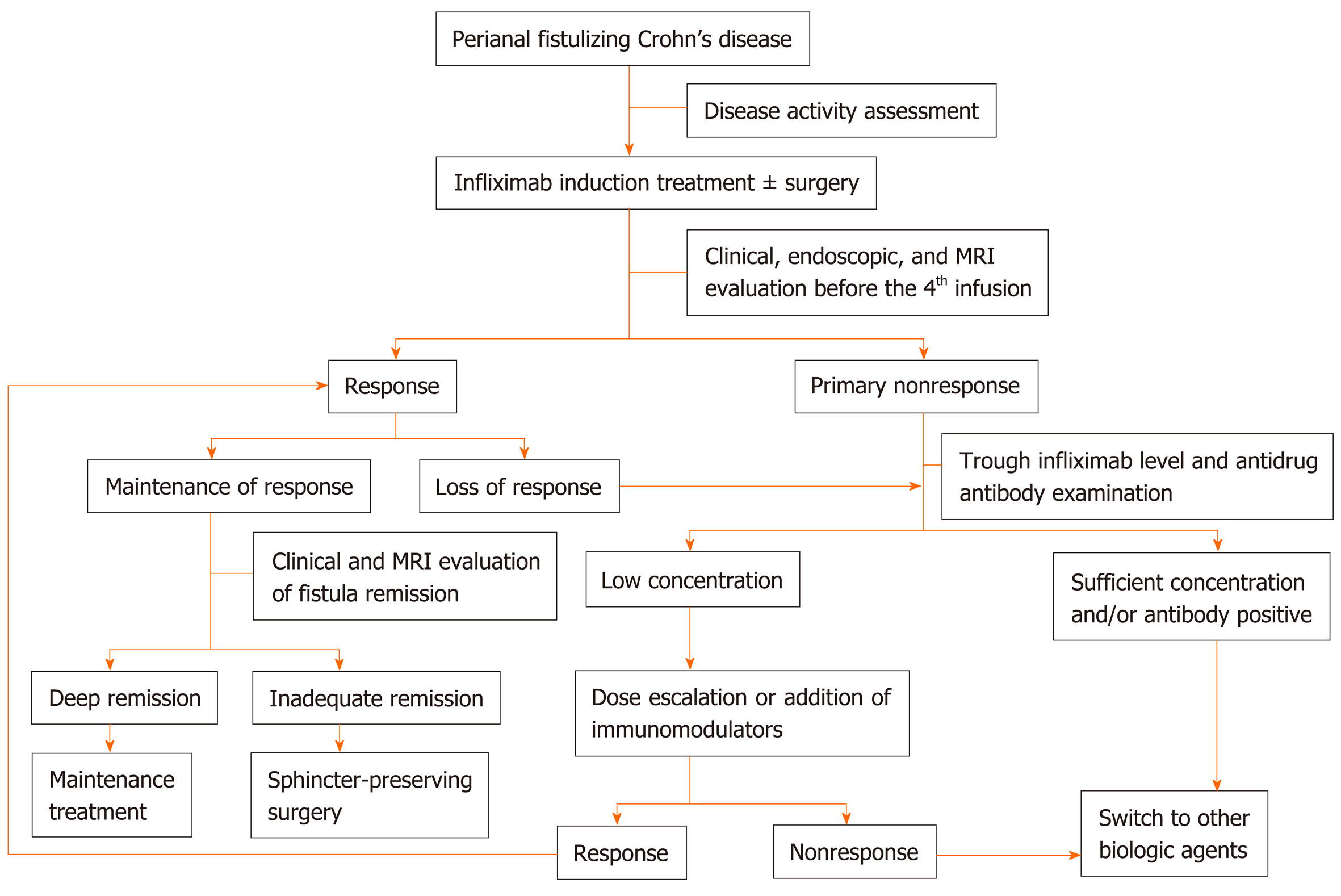©The Author(s) 2020.
World J Gastroenterol. Apr 14, 2020; 26(14): 1554-1563
Published online Apr 14, 2020. doi: 10.3748/wjg.v26.i14.1554
Published online Apr 14, 2020. doi: 10.3748/wjg.v26.i14.1554
Figure 1 Ligation procedure of the intersphincteric fistula tract for Crohn’s disease-related perianal fistula.
A: Identification of the fistula tract with a probe; B: Ligation of the intersphincteric tract; and C: Suture of the intersphincteric incision following curetting the remnant tract.
Figure 2 Deep remission of Crohn’s disease-related perianal fistula on magnetic resonance imaging.
A: Hyperintense signal on T2-weighted fat-suppression imaging showing an active suprasphincteric fistula; B: Disappearance of hyperintense signal on T2-weighted fat-suppression imaging displaying deep remission of the fistula.
Figure 3 Therapeutic strategy of perianal fistulizing Crohn’s disease.
MRI: Magnetic resonance imaging.
- Citation: Sun XL, Chen SY, Tao SS, Qiao LC, Chen HJ, Yang BL. Optimized timing of using infliximab in perianal fistulizing Crohn's disease. World J Gastroenterol 2020; 26(14): 1554-1563
- URL: https://www.wjgnet.com/1007-9327/full/v26/i14/1554.htm
- DOI: https://dx.doi.org/10.3748/wjg.v26.i14.1554















